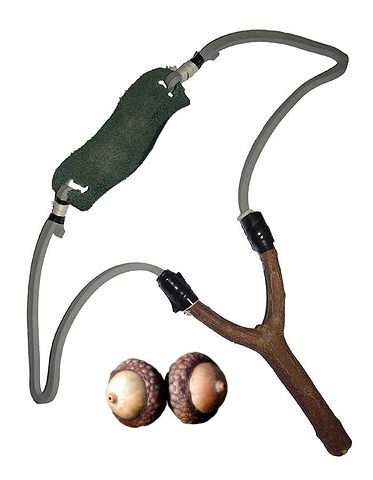APRIL 18, 2024 – (Cont.) The next fall, Bobby and I, along with other neighborhood boys, had stepped up our game substantially. In addition to various forms of football and baseball, we were now playing war on a regular basis. I didn’t yet know much about WWII. (Dad had a permanent deferral based on his horrific hay fever, though he did work as a translator re-writing into English, the instructions to Swedish-made machine guns that the U.S. Army had purchased). All the neighborhood kids, however, knew who our enemies had been. Consequently, when we occupied the natural trenches along the street frontage of the deep oak-shaded Thurston river lots, I found myself fighting either “Japs” or “Germans,” and thereby learned who the “bad guys” had been. Because they were always invisible, however, I never associated “Japs” or “Germans” with actual people, and thankfully, I was spared the early onset of racial or ethnic prejudice.
In time, WWII morphed into modern warfare featuring acorns and slingshots. It didn’t take long before we went mobile; that is, loading, aiming, and shooting acorns while riding our bikes. And you don’t have a war without injuries, which in our case, were skinned knees and hands from bike crashes and bruises from actual acorns fired by slingshots. Fortunately, or rather, miraculously, no one ever took a head shot or worse, lost an eye.
We did take things to a serious level, however, which led to a full-scale “castle siege” involving our house. The ruckus had started way down Rice Street and migrated gradually to “Castle Nilsson.” At that point in the battle, my side was on the run, but we had a sizable lead to ready ourselves for the coming attack. We parked our bikes haphazardly in the driveway and hauled our bags and pails of acorns into the house, up the stairs, through my parents’ bedroom and onto the sundeck above the garage. For added protection we tipped the folding picnic table against the inside of the front railing. We then loaded our slingshots and waited for the attackers to appear.
In the lead was Bobby’s older brother, David, who, mind you, was older than my oldest sister, which meant he was so old he’d been driving a car for two years. On “siege day,” however, he pulled up on his 10-speed. He was a big kid who could move fast. I’d had little to do with him before then. He was rarely around when I was at Snyder’s, and the few times when I did encounter him, he showed as much interest in greeting me as Mr. Snyder ever had. But somehow on that afternoon David had some free time on his hands and had been enticed into the acorn fight—probably because it involved acorns and was a fight.
His scary face with the piercing round eyes and his extreme stretch of the side rubbers of his slingshot were enough to be a kid’s nightmare. His aim was enough to give a tough-skinned victim an actual major welt. He was the other side’s not-so-secret weapon.
As he dismounted from his bicycle, I saw my advantage—height (afforded by my elevated location on the sundeck) and timing. He readily saw this too and darted at right angles to my aim as he frantically loaded an acorn into his slingshot. Just as I released my shot but before he could release his, I saw what would happen next: he would crash into my Western Flyer three-speed which was parked on the side of the driveway.
At first I couldn’t tell if his wild shriek was from the pain of a high-velocity acorn striking the big guy’s back or Dave’s getting all tangled up with my bicycle. His serious limp and big gash on his shin revealed that the bike strike was the main cause of his pain. The injury ended our acorn-slingshot war. After the sides broke up, I inspected my bike, now lying on the grass six feet from the driveway. One of the crank arms was irreparably bent. For as long as I had the bike thereafter, the arm would click against on the chain guard, a constant reminder of the acorn battle.
The permanent damage to my bicycle was nothing compared to the permanent damage that David Snyder would later suffer in the Vietnam War, where he was a victim of agent orange.
Bobby and I went our separate ways, in large part because my way was off to school a million miles away. During a vacation years later, however, I stopped by to say hello. By that time Bobby had grown up and was no longer “Bobby” but “Bob.” He’d joined the Navy and happened to be home on leave. What I remember of the conversation is that he was “in hydraulics.” Appropriate, I thought, given that his branch of the armed forces was closely associated with water.
Subscribe to this blog and receive notifications of new posts by email.
© 2024 by Eric Nilsson
